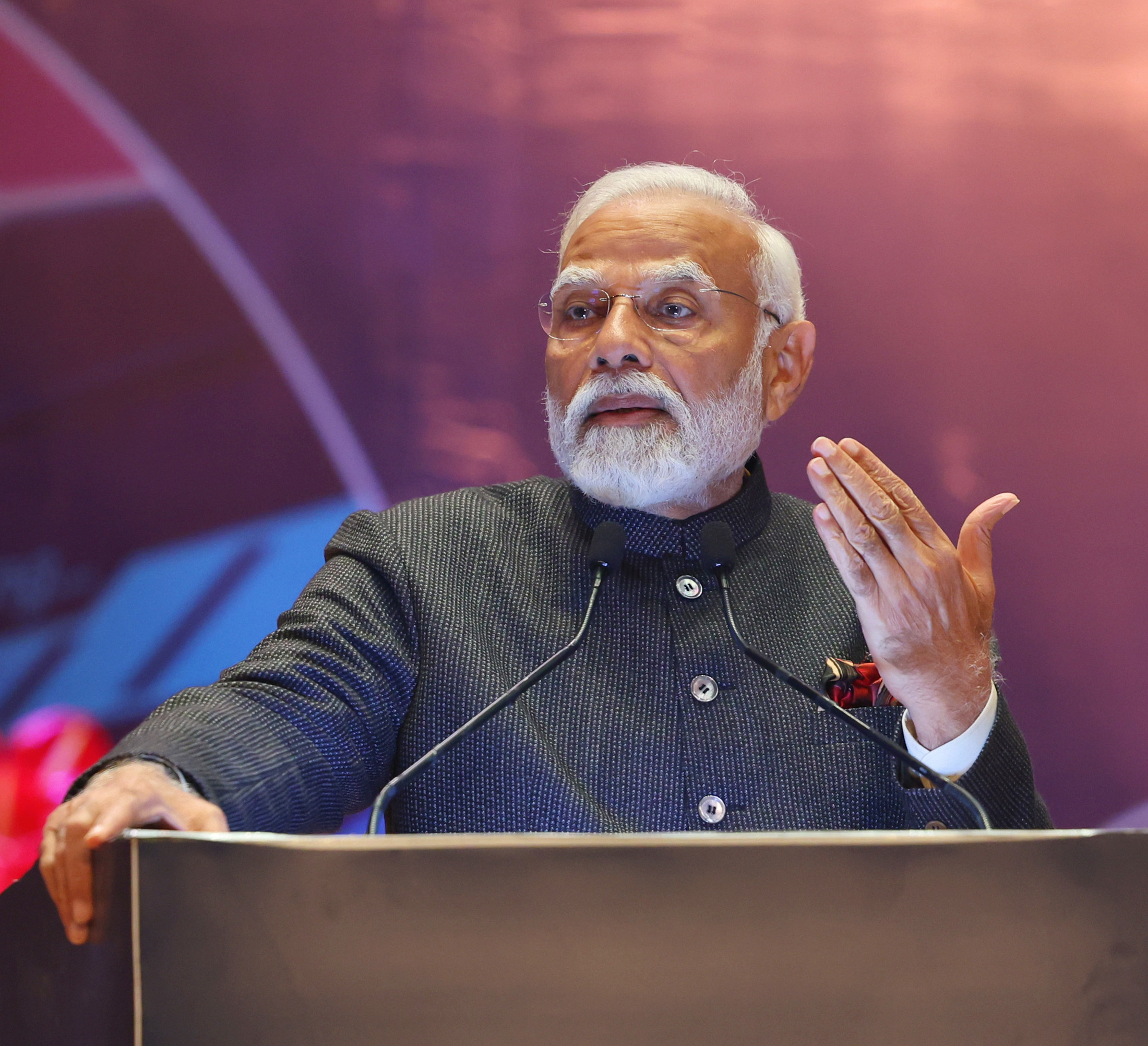The News Freedom
New Delhi, February 2
.Prime Minister Narendra Modi today said that India is moving fast and will become the world’s third-largest economy in the third term of his government. While addressing a program at India’s largest and first-of-its-kind mobility exhibition – Bharat Mobility Global Expo 2024 at Bharat Mandapa in New Delhi, the Prime Minister recalled a mobility-related conference from his first term and remembered his focus on battery and electric vehicles and expressed satisfaction that he could see significant progress during his second term and said that in the third term mobility will see new heights. “India is certain to become the third largest economy in the world in the third term of our government,” he said.
Reiterating the goal of Viksit Bharat by 2047, the Prime Minister underlined the pivotal role of the mobility sector. He repeated his call that he gave from the rampart of the Red Fort that ‘Yeh Hi Samay Hai, Sahi Samay Hai’- this is the right time. “India is on the move and is moving fast”, the Prime Minister said, highlighting that the present era is the beginning of the golden period for the mobility sector.
He underlined that the economy of India is expanding at a fast pace and India is set to become the third-largest economy in the world during the present government’s third term. Throwing light on the efforts of the government in the last 10 years, the Prime Minister informed that approximately 25 crore people have risen out of poverty.
He emphasized that when a citizen breaks out of poverty, the means of transportation be it a cycle, two-wheeler, or a four-wheeler, becomes their first requirement. Touching upon the emergence of a neo-middle class, the Prime Minister underscored the need to fulfill the aspirations found in such economic strata which is equal to none.
The Prime Minister stressed that the expanding spheres and growing income of the middle class of the country will give strength to the mobility sector of India.
“The numbers of growing economy and the growing income are bound to infuse new confidence in the mobility sector”, Shri Modi said, pointing out that the number of cars sold in India rose from 12 crores to more than 21 crores from the 10 years before 2014 to after 2014, while the number of electric cars sold in India rose from 2 thousand per year 10 years ago to 12 lakh per year today. He further added that in the last 10 years, the number of passenger vehicles saw an increase of 60 percent while two-wheelers increased by 70 percent. According to the latest statistics, the Prime Minister informed that car sales in January have broken all previous records. “The mobility sector is witnessing an unprecedented atmosphere in the country and you must capitalize on it”, PM Modi urged the industry leaders present on the occasion.
The Prime Minister said that today’s India is making new policies keeping in mind the needs of the future. Referring to the Union Budget that was presented yesterday, PM Modi informed that in 2014 India’s capital expenditure was less than 2 lakh crore and has risen to more than 11 lakh crore today. This has brought many opportunities for India’s Mobility sector, he said. This unprecedented expenditure is transforming rail, road, airport, waterway transport and all other sorts of transport. He also talked about the completion of engineering marvels like Atal Tunnel to Atal Setu in a record timeframe. 75 new airport has come up in India in the last 10 years, about 4 lakh kilometer rural roads have been laid, 90,000 km of national highways have been constructed, 3500 km of high-speed corridors have been developed, 15 new cities got Metro and 25,000 rail routes have been constructed. Conversion of 40,000 rail coaches into modern Vande Bharat type bogies was announced in the Budget. These coaches when fitted in the ordinary trains will transform the Indian Railways.
The Prime Minister said that “the speed and scale of our government has changed the very definition of mobility in India”. He talked about systematic and timely completion of jobs and highlighted the steps for removing logistics bottlenecks. PM National Gati Shakti Masterplan is promoting integrated transport in the country. GIFT City regulatory framework has been worked out for aircraft and ship leasing. National Logistics policy is addressing the problems of logistics, he said. Dedicated freight corridors are bringing the costs down. Three Railway Economic corridors announced in the Union Budget will also increase the ease of transportation in the country.
The Prime Minister also highlighted the transformative impact of the Goods and Services Tax (GST) in accelerating trade and abolishing check posts at state borders. Furthermore, Prime Minister Modi underscored the role of Fast-Tag technology in saving both fuel and time in the industry. “Fast-Tag technology is facilitating savings in fuel and time in the industry,” he affirmed. Citing a recent study, the Prime Minister noted that Fast-Tag technology is contributing to an annual benefit of ₹40,000 crores to the economy.
“India is now on the threshold of becoming a global economic powerhouse, with the auto and automotive component industry playing a significant role,” the Prime Minister said.
